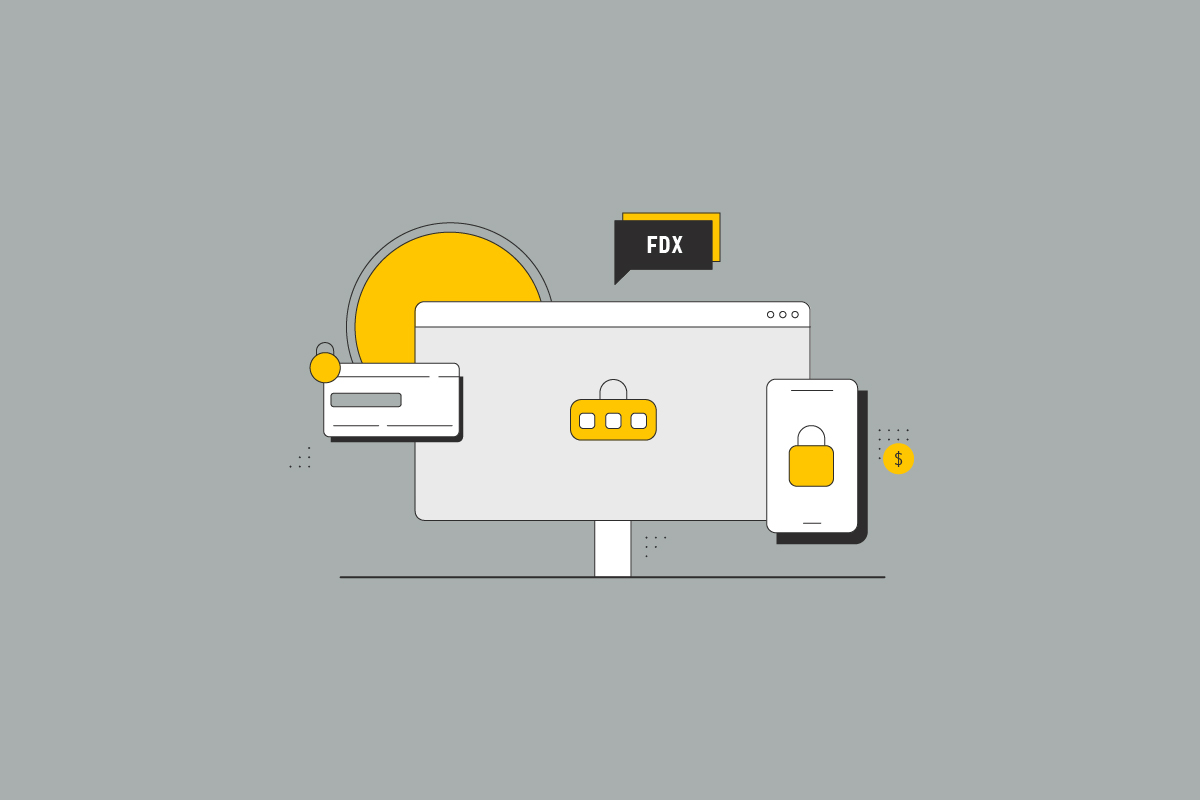Blog
What is FDX?
March 28, 2023
Editorial Team

In the early days of online payments, security was the biggest concern. Were consumers really safe adding their credit card information to an e-commerce checkout page? And merchants had to grapple with the same questions, which led to the emergence of payment processing vendors.
Now we’ve entered a new chapter in the world of online payments: secure, with multiple payment options. Not every customer wants to pay with a credit card or use a payment service like PayPal. Direct person-to-person and account-to-account payments are on the rise.
In order to make these types of payments, consumers have to rely on their bank’s ability to share financial data with a third party. That’s where open banking and the Financial Data Exchange (FDX) come into play.
The emerging role of open banking
While the average consumer doesn’t know the term “open banking,” its use is on the rise. In early 2022, about 10-11% of digitally-enabled consumers were using at least one open banking service, compared to 6-7% in the year prior. Use cases range from personal finance apps to accounting to digital banking.
Open banking allows financial institutions to share account details and transaction history. This type of data sharing has been encouraged by the Consumer Financial Protection Bureau. The CFPB wrote in 2017: “Consumer-authorized access and use of consumer financial account data may enable the development of innovative and improved financial products and services, increase competition in financial markets, and empower consumers to take greater control of their financial lives.”
But the CFPB also cautioned: “To accomplish these objectives, however, such access and use must be designed and implemented to serve and protect consumers.”
The sharing of account information alone is highly sensitive, and consumers often need to log into their primary bank via a third-party app to provide access. For those that have accounts with multiple institutions, this is a complicated, multi-step process.
What is the financial data exchange?
The Financial Data Exchange (FDX) is a non-profit with a mission of simplifying and standardizing financial data sharing in lieu of a regulatory framework. Operating in the U.S. and Canada, FDX focuses on security, consumer control, and standardizing financial account access.
FDX has more than 200 financial industry members and stakeholders, including some of the largest banks in the U.S. As of reporting in October 2022, more than 42 million customer accounts are shared through FDX, up from 32 million earlier the same year. Members include financial institutions, fintechs, payment networks, consumer groups, and more.
FDX core principles
FDX puts the consumer front and center, believing that consumers should have control over the accounts and type of data shared with third parties. With this in mind, FDX operates under five core principles:
Control: Consumers must grant permission
Access: Consumers can access their data and can determine how it is shared with third parties
Transparency: Consumers should understand how their data is shared and used. Only required data should be shared
Traceability: All data transfers should be traceable and consumers should have a complete view of all parties involved in data sharing
Security: Third parties need to follow cybersecurity best practices and ensure the safety and privacy of data during access, transport, and at rest
FDX expects participating financial institutions and services to abide by its core principles and provides support for them to do so.
FDX API
Most APIs today lack interoperability. For customers with multiple accounts, financial access is a cumbersome process. FDX aims to change this with an interoperable technical standard called the FDX API. The FDX API authenticates users and retrieves data without the use of consumer credentials.
The FDX API is available without charge for parties that accept FDX’s license agreement. The API offers secure authentication with restful API.
The FDX board and FDX members work together to continue to improve the FDX API. These efforts include a technical review committee, security and authentication group, user experience group, customer advocacy group, along with others.
Empowering financial partners, enabling consumers
While the FDX board includes industry giants like Bank of America, Fidelity, Plaid, Equifax Canada, and others, the goal of FDX is to serve members of all sizes and create a financial services ecosystem.
By connecting institutions of all sizes, FDX creates a more level playing field for customers to choose a primary financial institution and then select supplementary financial services and apps. This all happens more easily with the interoperability that the FDX API provides.
As open banking continues to innovate, the complexity of financial transactions is removed. By making data more accessible, consumers are able to initiate faster payments, make more informed decisions, and better control their money.
Link Money is powered by open banking and abides by FDX standards. Learn how you can enable customers to pay securely from their bank accounts here.